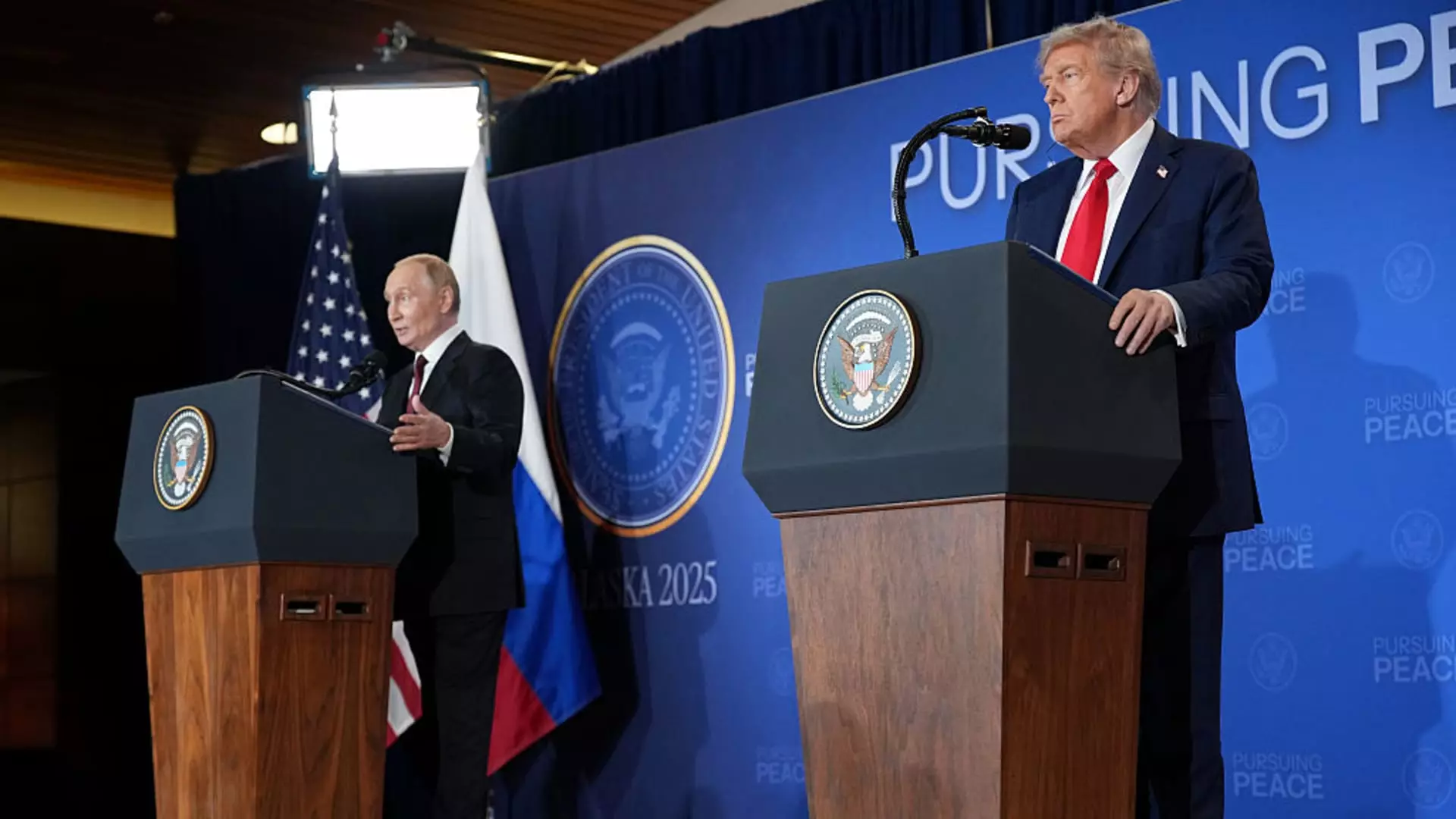President Donald Trump’s recent assertion that his summit with Vladimir Putin “went very well” seems less like a sign of meaningful progress and more like a carefully cultivated illusion. While rhetoric often leans toward positivity, the reality is starkly different. Trump’s focus on a “Peace Agreement” instead of a ceasefire glosses over the hard truth: genuine peace cannot be brokered through diplomatic spectacle alone. It requires acknowledgment of complex realities, sincere commitment, and the willingness to impose consequences for unchecked aggression. The claim that such an agreement would “end the war” prematurely dismisses the intricacies of Ukraine’s sovereignty and the ongoing violence. This overconfidence risks prolonging conflict rather than resolving it, emboldening Russia by seemingly giving credence to the idea that diplomatic gestures can substitute for firm action.
Ignoring Ukraine’s Agency and European Concerns
Notably absent from Trump’s narrative is any mention of Ukraine’s leadership or interests. European allies, especially Ukraine’s President Volodymyr Zelenskyy, clearly advocate for a cessation of hostilities that preserves Ukrainian sovereignty. The joint statement from European nations advocating for Ukrainian participation underscores a shared skepticism about any negotiated settlement that sidelines Kyiv’s voice. By excluding Ukraine from the conversation, the U.S. and its European partners risk alienating the very country most affected by the conflict, undermining long-term stability and regional cooperation. This exclusion hints at a troubling tendency to treat Ukraine as a bargaining chip rather than a nation with the right to self-determination.
The Diplomatic Gamble and Future Risks
Trump’s intent to schedule meetings with Zelenskyy and possibly Putin reveals a cavalier attitude toward the volatility of international diplomacy. It suggests a preference for spectacle over substance; meetings for the sake of optics rather than strategic solutions. Meanwhile, Russia’s signals of victory—calling for a new global security architecture—are a stark warning. Moscow’s narrative frames this as a move toward a new order, sidelining Western sanctions and international condemnation. Such posturing dangerously escalates tensions and undermines the collective efforts of democratic nations to hold Russia accountable. It’s a risky gamble that may ultimately weaken the West’s stance, diluting the moral imperative to defend Ukraine and uphold international law.
A Center-Left Perspective: Questioning the Legacy of Flawed Diplomacy
From a centrist liberal standpoint, Trump’s approach appears naïve and perilous. Diplomacy rooted in real justice requires more than meetings and rhetoric; it demands a firm stance against expansionist aggression and a commitment to human rights. Allowing Russia to continue fighting unchecked under the guise of negotiations signals a troubling prioritization of appeasement over justice. While dialogue is essential, it must be accompanied by clear red lines and accountability. Otherwise, we risk hollow peace agreements that serve only to prolong suffering and destabilize the international order. True leadership involves balancing diplomacy with resolve, ensuring that peace is built on foundations of fairness and respect for sovereignty—not on illusions of quick fixes and empty promises.

